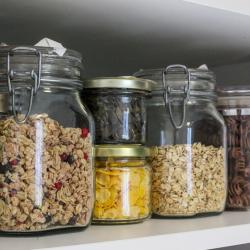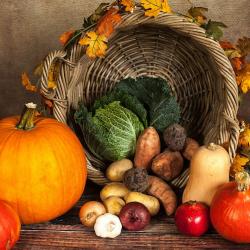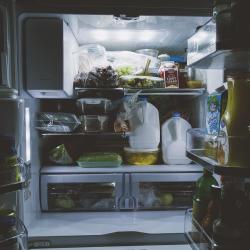Food Storage Myths: What You Should and Shouldn't Do
Understanding effective food storage is crucial. However, there are many misconceptions about the best ways to store food. These food storage myths can not only lead to waste but also pose health risks. Let’s debunk some common myths and explore what you should and shouldn't do when it comes to storing your food.
Myth 1: All Fruits and Vegetables Should Be Stored in the Refrigerator
One of the most common food storage myths is that all fruits and vegetables should be stored in the refrigerator to maintain freshness. While refrigeration can prolong the life of many perishables, not all fruits and vegetables fare well in cold environments. For instance, tomatoes lose their flavor and texture, while potatoes develop a gritty texture in refrigerated conditions. Instead, store pantry staples like onions and garlic in a cool, dry place. Keep fruits like bananas, avocados, and apples at room temperature until they ripen.
Myth 2: Bread Stays Fresh Longer in the Fridge
Another widespread belief is that storing bread in the fridge keeps it fresh. In reality, refrigeration speeds up the staling process as the cold temperature causes the starches in bread to recrystallize faster. To keep bread fresh, store it at room temperature for short-term use. For longer storage, freeze bread and toast slices directly from the freezer when needed.
Myth 3: Eggs Should Always Be Kept in the Refrigerator Door
While eggs should indeed be refrigerated, storing them in the door is a mistake. The door is the warmest part of the fridge due to frequent opening, leading to temperature fluctuations that can spoil eggs faster. Instead, keep eggs in the main body of the refrigerator, where the temperature is more consistent.
Myth 4: It’s Safe to Store Canned Foods Indefinitely
Canned foods are revered for their long shelf life, but this doesn’t mean they last forever. Over time, canned goods can lose quality, flavor, and nutritional value. For optimal safety and quality, use canned foods within the recommended shelf life, usually ranging from 1 to 5 years. Check for any signs of spoilage, such as rust, dents, or bulging, before consuming canned goods.
Myth 5: You Can Refreeze Thawed Meat Safely
The common notion is that once meat has been thawed, it cannot be refrozen without cooking first. While refreezing meat can affect its texture and quality, it is safe to refreeze it as long as it was thawed in the refrigerator and not at room temperature. However, always ensure the meat has not been sitting in the fridge for more than 1-2 days before refreezing.
Myth 6: Expiration Dates Are Absolute
Expiration dates can be confusing and often lead to perfectly good food being thrown away. It’s important to differentiate between "sell-by," "best-by," and "use-by" dates. "Sell-by" dates guide retailers, "best-by" dates indicate when the product is at peak quality, and "use-by" dates relate to peak quality rather than safety. Trust your senses and judgment when assessing a product's viability, keeping in mind food safety guidelines and storage conditions.
Conclusion
Proper food storage is key to minimizing waste and ensuring safety. By debunking these myths and adopting reliable storage practices, you can make your food last longer, retain its nutritional value, and contribute to a more sustainable world. Remember to stay informed and skeptical of common misconceptions, as the key to successful food storage lies in knowledge and awareness.





















